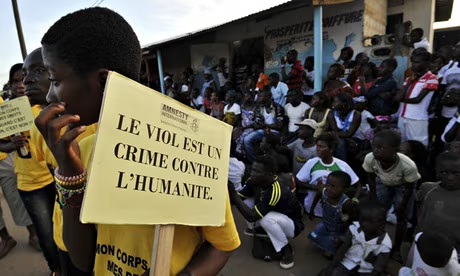As we observe the 2012 International Day for the Elimination of Violence against Women, it is sadly clear that gender-based violence remains a serious issue throughout the world. Despite widespread efforts to address this problem, violence against women, often underestimated, is rarely punished.
The Committee on the Elimination of Discrimination against Women (CEDAW) defines gender-based violence to be violence that is directed against a woman because of her gender or violence that affects women disproportionately and declares it to be “a form of discrimination against women that seriously inhibits women’s ability to enjoy rights and freedoms on a basis of equality with men”.
The inalienable right of women and girls to live free of violence is enshrined in international human rights and humanitarian law. However, violence against women continues to be one of the most systematic and prevalent human right abuses in the world and remains one of the most significant barriers to women’s full equality. In Africa, violence against women is still a largely hidden phenomenon and this is so for a number of reasons: “the predominance of the system of patriarchy across Africa has meant that women are still perceived of and treated as subordinate to men; violence against women is accepted as the cultural norm in many societies and is often condoned by community and sometimes state leaders”[1].
On this International Day, IHRDA urges all stakeholders to take responsibility for eradicating violence against women and calls on African governments to honour their pledges to end all forms of gender-based violence.
IHRDA seizes this opportunity to urge all African States to ratify the Maputo Protocol on the Rights of Women in Africa and all other relevant instruments protecting women’s rights and take appropriate measures to ensure their implementation.
[1] United Nations Economic Commission for Africa, African Centre for Gender and Social Development (ACGSD) : “VIOLENCE AGAINST WOMEN IN AFRICA: A SITUATIONAL ANALYSIS”




